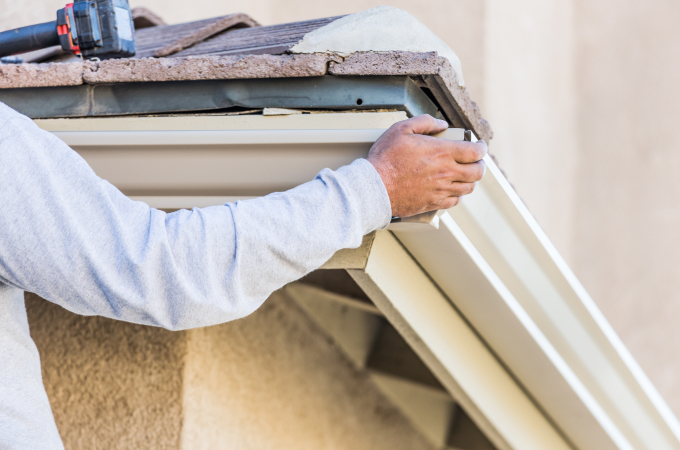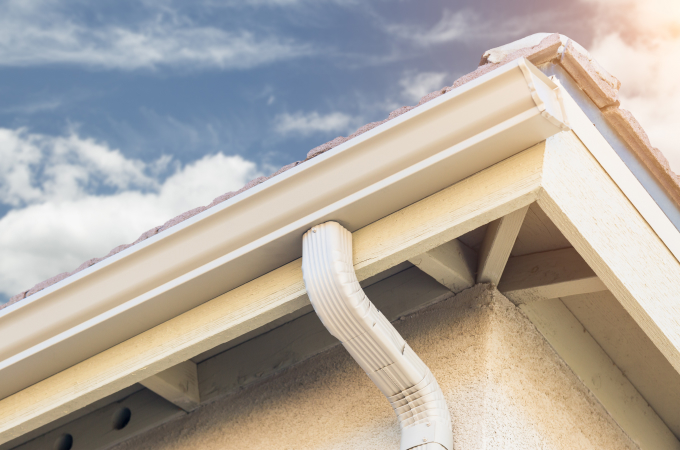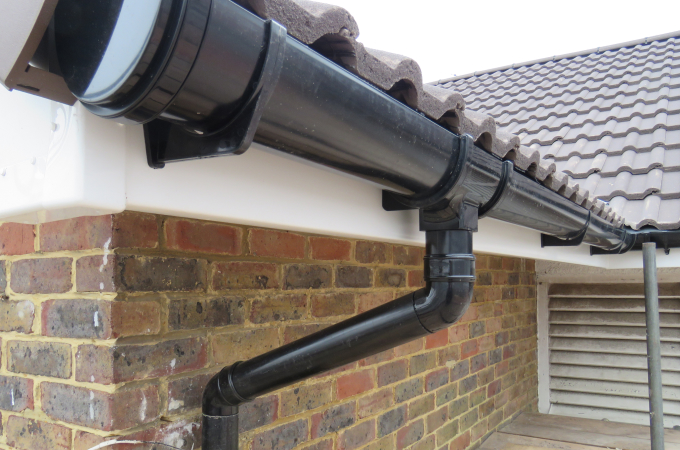In order to offer a complete gutter system—and do it all “in-house”—you need some additional equipment to supplement your seamless gutter machine. With appropriate equipment you can make both downspout pipe and elbows.
Portable Downspout Machine
If you want a portable downspout machine that you can take to the job site, you are rather limited in your choice: Liberty Seamless is the only U.S. company which makes such a machine. Their portable downspout machine is comparable in size to a seamless gutter machine. It can produce 2×3 or 3×4 downspouts from aluminum, steel, or copper stock. For 4×5 or round downspouts no “portable” machines are produced in the U.S. If you want to make those kinds of downspouts you will have to buy an industrial-grade machine designed to work in your shop, rather than at the job site.
Industrial Downspout Machines
Several U.S. companies produce industrial-grade machines for roll forming downspouts. These machines are larger, heavier, and more expensive than portable roll forming machines. They are also capable of significantly higher production rates.
Artos produces standard pipe machines which can produce round pipe in sizes from 2-inch to 6-inch diameters, corrugated round pipe in 3-inch or 4-inch sizes, square corrugated pipe in 3-, 4-, or 5-inch sizes and 2×3 or 3×4 plain square pipe. They can handle mild steel, aluminum, or copper material and produce pipe at speeds up to 165 feet per minute. (Your seamless gutter machine probably produces about 30 feet per minute.
Jobsite’s CTMe Series machines can produce 2×3, 3×3, 3×4, or 4×5 profile downspouts, and elbows. They can produce downspout at about 115 feet per minute. Production rates are up to 600 10-foot sections per hour. Changeover from pipe mode to elbow mode takes only a few minutes. Production rates for elbows are 837 per hour. Jobsite also produces the RTMe Series machines, which can produce round downspouts and elbows in 3- or 4-inch sizes. Production rates are comparable to the CTMe Series rates.
Liberty Seamless manufactures two different kinds of pipe machines that have a more modest production capability. Their Stationary machine can produce round pipe in 3- or 4-inch sizes. This machine uses a 1hp motor configured for 110 or 220 volts. It can run aluminum, steel, or copper. Production rates are about 30 feet per minute. The Industrial machine is available to produce round or industrial round pipe in 3- or 4-inch sizes, or 2×3, 3×4, or 4×5 downspouts. The unit has a 4hp main motor plus a 7.5hp motor for hydraulics. It produces downspout at 25 to 33 feet per minute. This is definitely not a portable unit.
Elbow Machines
There are also few U.S. manufacturers producing elbow machines. Available U.S. manufacturers include Jobsite, Knudson, and Liberty.
Jobsite’s two industrial machine models, which were discussed above, include elbow-forming functions: the CTMe Series for rectangular pipe and the RTMe Series for round pipe. Jobsite also produces a portable elbow-forming machine, the ELF, which can produce 2×3 or 3×4 elbows. It is powered by a 1-1/2hp, 110V motor. The unit weighs 575 pounds.
Liberty makes several different models of round elbow machines. The EL series comes in 3 inch, 4 inch, or “combo” models. The unit is relatively small, standing only 24 inches high and weighing 575 pounds. It is powered by a 1.5hp, 110V motor. The ELI series is a larger, heavier machine. It stands 5’ 6” high, weighs 1,000 pounds, and is powered by a 3hp motor.
There are also foreign manufacturers that produce equipment of these types. As with any item produced outside the U.S., there are the issues of accessibility to service, parts, and support. A reliable, experienced U.S. dealer can do much to assure timely support for equipment from foreign sources.
In planning your business you must consider the options of buying material from a supplier vs. making items with your own equipment. In the area of downspouts and elbows, you need to scope the volume of the business you are doing and evaluate the payback you might get from investing in your own equipment rather than buying your parts from a supplier. In particular, the investment required for an industrial-grade downspout machine is substantial and needs to be carefully evaluated.
 Contractors
Contractors



